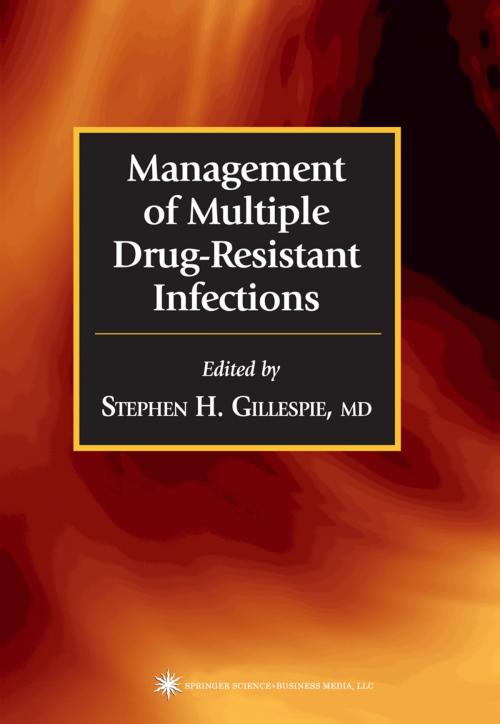Management of Multiple Drug-Resistant Infections
Nonfiction, Health & Well Being, Medical, Ailments & Diseases, Infectious Diseases, General, Specialties, Internal Medicine| Author: | ISBN: | 9781592597383 | |
| Publisher: | Humana Press | Publication: | January 12, 2004 |
| Imprint: | Humana | Language: | English |
| Author: | |
| ISBN: | 9781592597383 |
| Publisher: | Humana Press |
| Publication: | January 12, 2004 |
| Imprint: | Humana |
| Language: | English |
Multiple drug resistance to antimicrobials is a growing problem that limits the effective lifetime of nearly all drugs developed against microorganisms. In Management of Multiple Drug-Resistant Infections, prominent clinicians and leading microbiologists describe how practicing physicians can best treat bacterial, viral, protozoal, and helminthic infections when there is significant resistance to antibiotics. The authors focus on the major hospital and community-acquired pathogens, including S. aureus, S. pneumoniae, Enterococcus, Acinetobacter, and M. tuberculosis, and on the management of such common problems as multiple drug-resistant urinary tract infections and gonorrhea. Among the resistant tropical organisms covered are Salmonella typhi, malaria, and Burkholderia pseudomalei. Resistance to such important antiviral classes as antiretrovirals and anticytomegaloviral agents is also discussed, as are those measures necessary to prevent the spread of infections among patients. When national or international treatment guidelines cannot be established, clinical trial data, in vitro susceptibility data, and epidemiologic and pharmacological evidence are cited to help make treatment decisions. Wherever possible, the question of drug resistance is set in the context of its biology and epidemiology.
Comprehensive and practice-oriented, Management of Multiple Drug-Resistant Infections offers physicians and clinical microbiologists treating infectious disease patients not only a critically evaluated guide to the immense literature of the field, but also an up-to-date practical survey of today's gold-standard therapeutic strategies.
Multiple drug resistance to antimicrobials is a growing problem that limits the effective lifetime of nearly all drugs developed against microorganisms. In Management of Multiple Drug-Resistant Infections, prominent clinicians and leading microbiologists describe how practicing physicians can best treat bacterial, viral, protozoal, and helminthic infections when there is significant resistance to antibiotics. The authors focus on the major hospital and community-acquired pathogens, including S. aureus, S. pneumoniae, Enterococcus, Acinetobacter, and M. tuberculosis, and on the management of such common problems as multiple drug-resistant urinary tract infections and gonorrhea. Among the resistant tropical organisms covered are Salmonella typhi, malaria, and Burkholderia pseudomalei. Resistance to such important antiviral classes as antiretrovirals and anticytomegaloviral agents is also discussed, as are those measures necessary to prevent the spread of infections among patients. When national or international treatment guidelines cannot be established, clinical trial data, in vitro susceptibility data, and epidemiologic and pharmacological evidence are cited to help make treatment decisions. Wherever possible, the question of drug resistance is set in the context of its biology and epidemiology.
Comprehensive and practice-oriented, Management of Multiple Drug-Resistant Infections offers physicians and clinical microbiologists treating infectious disease patients not only a critically evaluated guide to the immense literature of the field, but also an up-to-date practical survey of today's gold-standard therapeutic strategies.















